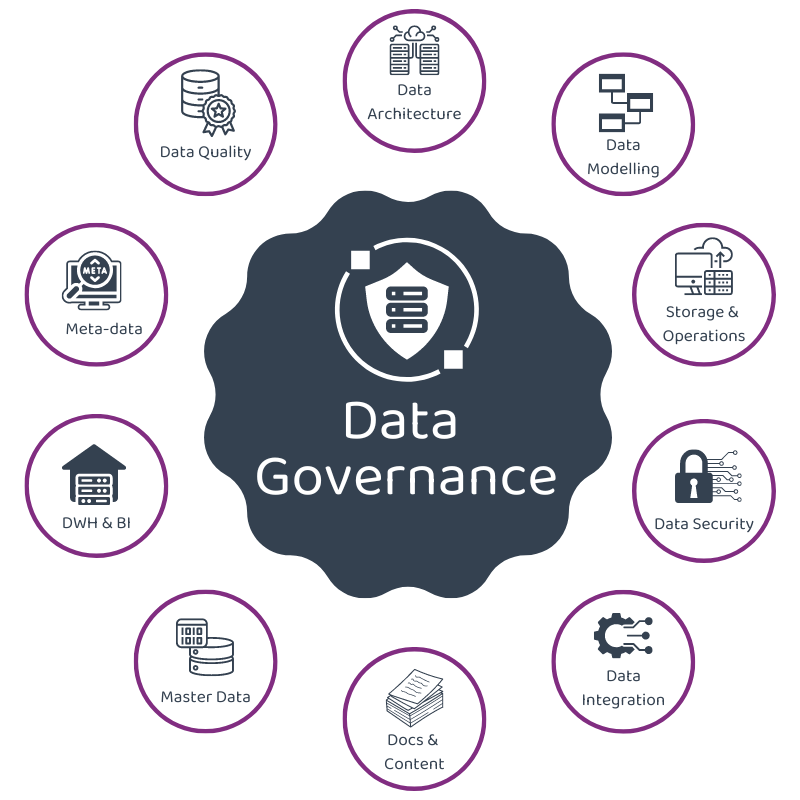Establishing Effective Data Governance Practices
Leadership Commitment: Effective data governance
starts from the top. Leadership must champion data
governance initiatives and allocate resources for their
implementation.
Data Governance Framework: Develop a framework
that outlines roles, responsibilities, and processes for
data management, ensuring clear accountability.
Data Cataloging: Maintain a comprehensive
inventory of your data assets, detailing their origin,
purpose, and usage. This helps in understanding what
data you have and how it's being used.
Data Quality Standards: Establish data quality
standards and regularly audit data for accuracy,
completeness, and consistency.
Data Security Measures: Implement robust security
protocols, including encryption, access controls, and
data masking, to protect sensitive information.
Data Lifecycle Management: Define the lifecycle
of data from creation to archival or deletion. This
ensures data relevance and reduces clutter.
Real-Life Example: Retail Analytics
Consider a retail chain aiming to enhance customer
experiences through data-driven insights. By
implementing data governance practices, they can ensure
that customer data is collected ethically, stored
securely, and analyzed accurately. This empowers them to
tailor marketing campaigns, optimize inventory
management, and personalize customer interactions,
leading to increased sales and customer loyalty.



